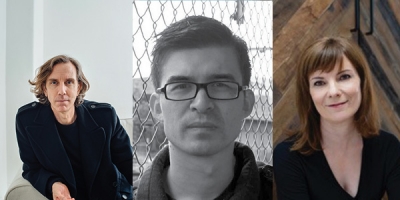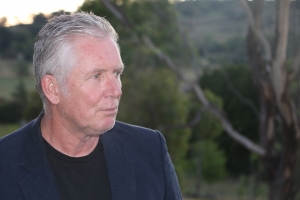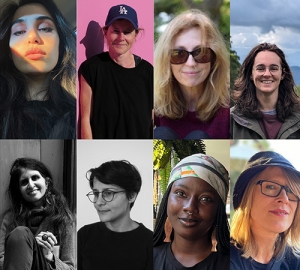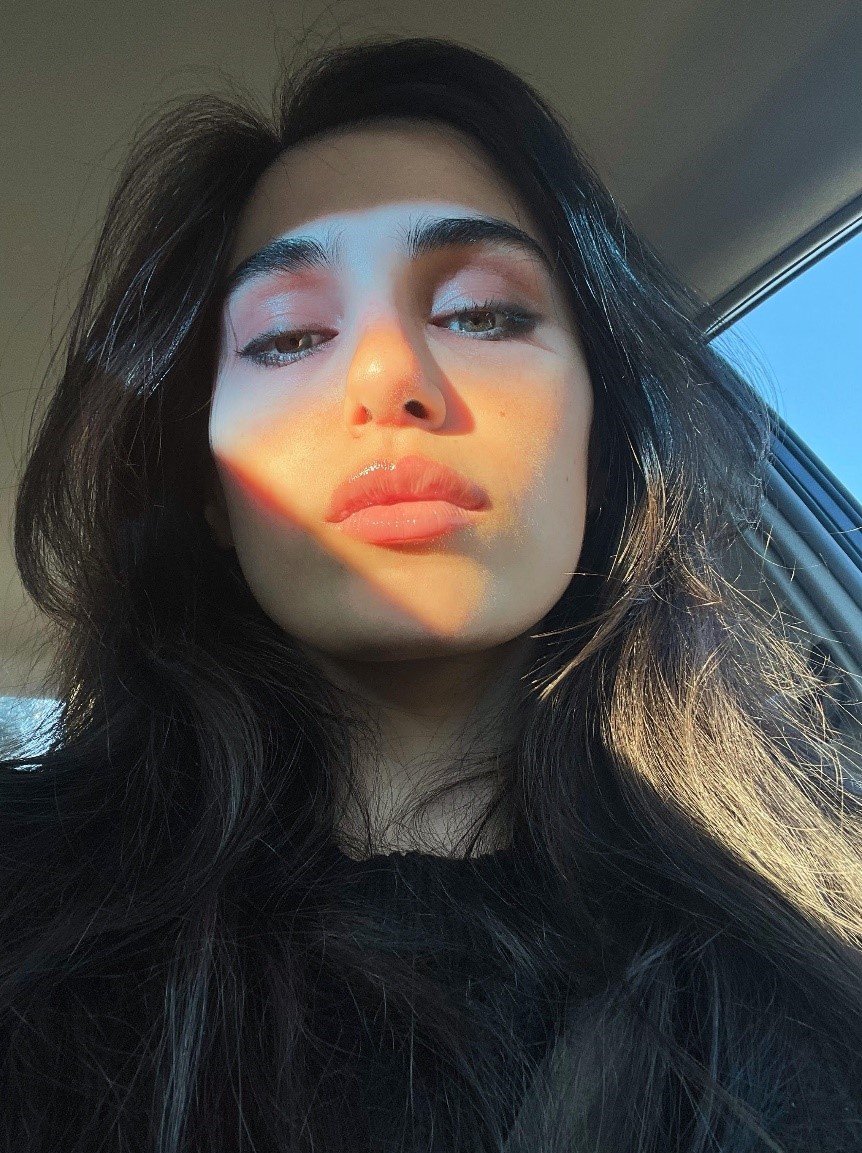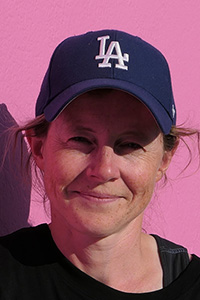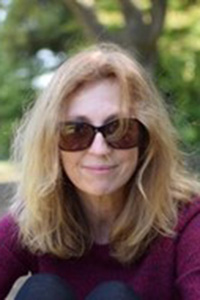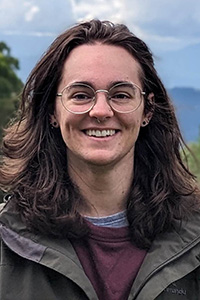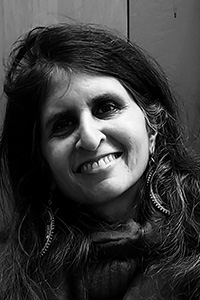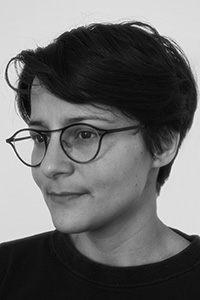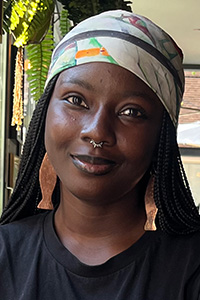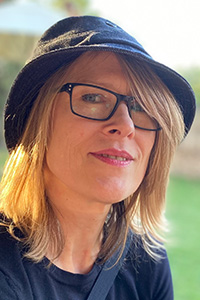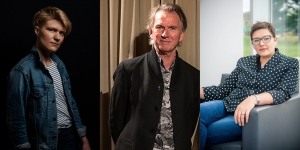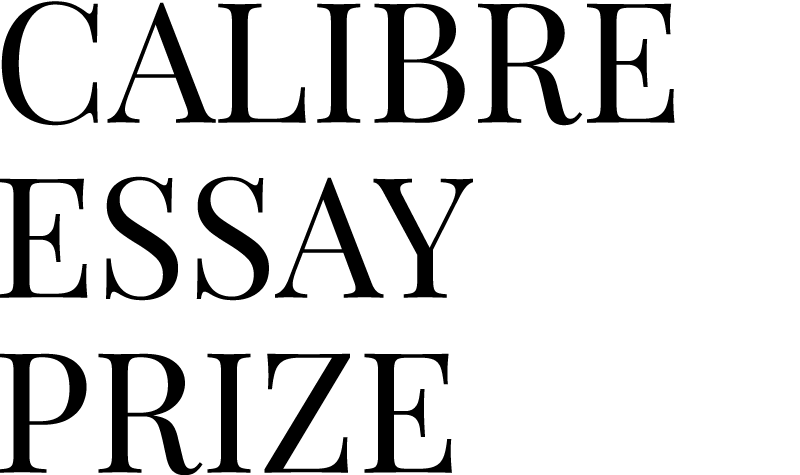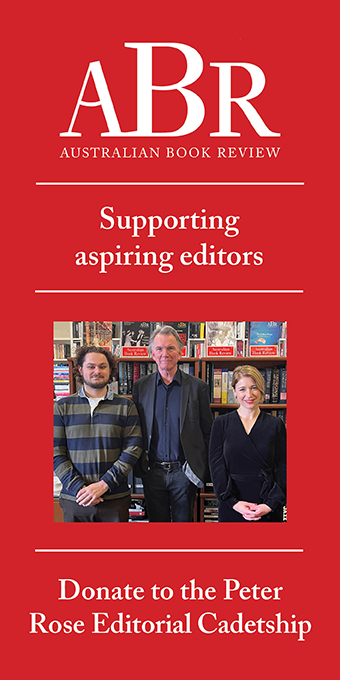Competitions and programs (114)
2024 Porter Prize Judges
 Dan Disney was the winner of the 2023 Peter Porter Poetry prize for his poem ‘periferal, fantasmal’. His most recent collection of poems, accelerations & inertias (Vagabond Press, 2021), was shortlisted for the Judith Wright Calanthe Award and received the Kenneth Slessor Prize. Together with Matthew Hall, he is the editor of New Directions in Contemporary Australian Poetry (Palgrave, 2021). He teaches with the English Department at Sogang University, in Seoul.
Dan Disney was the winner of the 2023 Peter Porter Poetry prize for his poem ‘periferal, fantasmal’. His most recent collection of poems, accelerations & inertias (Vagabond Press, 2021), was shortlisted for the Judith Wright Calanthe Award and received the Kenneth Slessor Prize. Together with Matthew Hall, he is the editor of New Directions in Contemporary Australian Poetry (Palgrave, 2021). He teaches with the English Department at Sogang University, in Seoul.
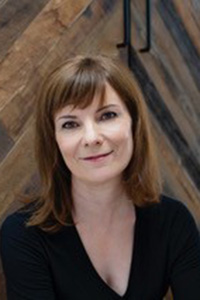 Felicity Plunkett is a poet and critic. Her latest work, A Kinder Sea, is published by UQP. Her first collection of poetry Vanishing Point (UQP, 2009) won the Arts Queensland Thomas Shapcott Prize and was shortlisted for several other awards. She has a chapbook Seastrands (2011) in Vagabond Press’ Rare Objects series. Felicity was Poetry Editor for University of Queensland Press and edited Thirty Australian Poets (UQP, 2011). She has a PhD from the University of Sydney and her reviews and essays have been widely published in The Australian, Sydney Morning Herald, Australian Book Review, Sydney Review of Books etc.
Felicity Plunkett is a poet and critic. Her latest work, A Kinder Sea, is published by UQP. Her first collection of poetry Vanishing Point (UQP, 2009) won the Arts Queensland Thomas Shapcott Prize and was shortlisted for several other awards. She has a chapbook Seastrands (2011) in Vagabond Press’ Rare Objects series. Felicity was Poetry Editor for University of Queensland Press and edited Thirty Australian Poets (UQP, 2011). She has a PhD from the University of Sydney and her reviews and essays have been widely published in The Australian, Sydney Morning Herald, Australian Book Review, Sydney Review of Books etc.
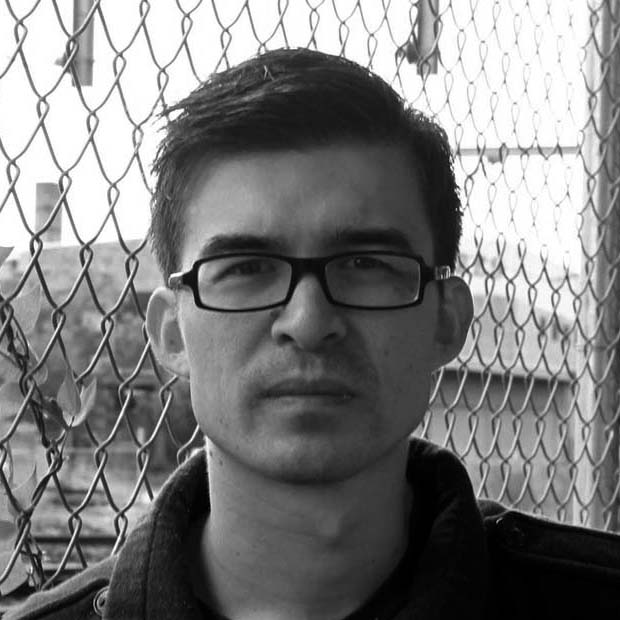 Lachlan Brown is a senior lecturer in English at Charles Sturt University, Wagga Wagga. He is the author of Limited Cities (Giramondo, 2012) and Lunar Inheritance (Giramondo, 2017). Lachlan has been shortlisted and commended for various poetry prizes including the Mary Gilmore Prize, the Newcastle Poetry Prize, the Gwen Harwood Poetry Prize, the Judith Wright Poetry Prize, and the Macquarie Fields Poetry Prize. Lachlan is currently the vice-president of Booranga Writers Centre in Wagga Wagga. His poem 'Precision Signs' was shortlisted in the 2020 Peter Porter Poetry Prize.
Lachlan Brown is a senior lecturer in English at Charles Sturt University, Wagga Wagga. He is the author of Limited Cities (Giramondo, 2012) and Lunar Inheritance (Giramondo, 2017). Lachlan has been shortlisted and commended for various poetry prizes including the Mary Gilmore Prize, the Newcastle Poetry Prize, the Gwen Harwood Poetry Prize, the Judith Wright Poetry Prize, and the Macquarie Fields Poetry Prize. Lachlan is currently the vice-president of Booranga Writers Centre in Wagga Wagga. His poem 'Precision Signs' was shortlisted in the 2020 Peter Porter Poetry Prize.
2023 Calibre Essay Prize Winner and Shortlist
Sydney writer Tracy Ellis is the winner of the 2023 Calibre Essay Prize for her essay 'Flow States'. Her name will be very familiar to ABR readers: Tracy won the 2022 ABR Elizabeth Jolley Short Story Prize for her story 'Natural Wonder'. (She is the first person to win both Calibre and the Jolley Prize.)
The judges – Yves Rees (past winner of the Calibre Prize), Peter Rose (Editor of ABR), and Beejay Silcox (critic and artistic director of the Canberra Writers Festival) – chose ‘Flow States’, the winning essay, from a field of 397 entries. Tracy Ellis receives $5,000 for her winning essay and the runner-up, Bridget Vincent, receives $2,500 for her essay 'Child Adjacent' which will appear in a future issue of the magazine.
‘Flow States’ begins with a single drop of water – a household tap left running. ‘As any plumber, doctor, or government knows, a little leak is never insignificant,’ writes Tracy Ellis. ‘A dripping hose can fill a swimming pool, a burst artery can drain your life away, a wily hacker can flood the porous, stateless internet with classified information and change the course of history.’ And so, from a single dripping tap, Ellis draws out a tale of the obliterative power – real, existential, and metaphorical – of floodwater.
‘Flow States’ impressed the Calibre judges with its elegance, layered richness, and sharp-eyed observation. It is an essay that invites – rewards – rereading. Part memoir, part cultural history, and part solastalgic elegy, ‘Flow States’ behaves like its subject: it ebbs and whorls. The result is something that speaks to our perma-crisis present, but tells a much older story.
Our 2023 runner-up, ‘Child Adjacent’ considers the culturally slippery responsibilities – and possibilities – of aunthood. ‘I am not the mother,’ writes Bridget Vincent, a writer originally from Ballarat. ‘I am an aunt instead, if “instead” is even the right word. There are categories – infertile, childless by circumstance, childless by choice – and within these, more specific groups like the Birthstrikers, who are publicly delaying procreation until there is climate action. Being an aunt of the Anthropocene is none of these and all of them at once.’
As wry as it is compassionate, ‘Child Adjacent’ impressed the judges with its conceptual freshness. It is an essay that broadens our understanding of family building, and interrogates the terrors and moral exigencies of parenting in the climate crisis. Vincent’s essay does subtle, private things in reverberative ways, which is the mark of an enduring essay.
Tracy Ellis on winning the Calibre Essay Prize:
‘It’s such an honour to be awarded the Calibre Essay Prize. I feel extraordinarily lucky that my essay resonated with the judges. To win on the back of the Jolley Prize brings an immense double happiness. ABR sets a high benchmark with the way they run Calibre and the Jolley. Having worked with Editor Peter Rose and the ABR staff on the Jolley Prize last year, I can testify to their integrity, refreshing lack of cynicism, and genuine respect for writers. These awards and acknowledgements do matter – they help enormously on both a professional and practical level. I’m extremely grateful to ABR, the judges, and Patrons, and give thanks for my good fortune.’
About Tracy Ellis
Tracy Ellis lives in Sydney and works as an editor in digital and print media. She was winner of the 2022 ABR Elizabeth Jolley Short Story Prize and runner-up for the 2022 Writing NSW Varuna Fellowship. She has a Master’s in Creative Writing from UTS.
2023 Calibre Prize Shortlist.
The eleven shortlisted essays are (in alphabetical order):
‘The Dark Side of Paradise’ by Ben Arogundade (UK)
‘Heimat’ by Ina Skär Beeston (UK)
‘Private Leo, My Imaginary Father’ by Kevin Brophy (VIC)
‘The Genealogies of Mr Senior’ by Martin Edmond (NSW)
‘See it Now’ by Jaimee Edwards (NSW)
‘Flow States’ by Tracy Ellis (NSW) - winner
‘The Muse of Potential Motherhood’ by Madison Godfrey (WA)
‘Blade of Grass, Meadow of Knives’ by Dan Hogan (NSW)
‘The Morning Belongs to Us’ by Siobhan Kavanagh (VIC)
‘Stone Country’ by John Stockfeld (VIC)
‘Child Adjacent’ by Bridget Vincent (VIC) - runner-up
Calibre Essay Prize:
The Prize, now in its seventeenth year, is one of the world’s leading awards for an original essay. We thank ABR Patrons Peter McLennan and Mary-Ruth Sindrey for supporting the Calibre Prize.
2023 Jolley Prize Judges
 Gregory Day lives on Wadawurrung tabayl in south-west Victoria, Australia. His work has won many awards, including the 2006 Australian Literature Society Gold Medal, the 2011 ABR Elizabeth Jolley Short Story prize, the 2020 Patrick White Award and the 2021 Nature Conservancy Nature Writing Award. Day's novel, A Sand Archive, was shortlisted for the 2019 Miles Franklin Award. He has a new novel, The Bell of the World, out in 2023.
Gregory Day lives on Wadawurrung tabayl in south-west Victoria, Australia. His work has won many awards, including the 2006 Australian Literature Society Gold Medal, the 2011 ABR Elizabeth Jolley Short Story prize, the 2020 Patrick White Award and the 2021 Nature Conservancy Nature Writing Award. Day's novel, A Sand Archive, was shortlisted for the 2019 Miles Franklin Award. He has a new novel, The Bell of the World, out in 2023.
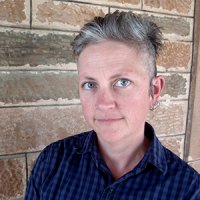 Jennifer Mills is an author, editor and critic living in Kaurna Yerta (Adelaide). Her novel Dyschronia was shortlisted for the Miles Franklin, Aurealis, and Adelaide Festival Awards for Literature in 2019. Mills’s latest book is The Airways, a queer ghost story set in Sydney and Beijing, published in 2021 by Picador.
Jennifer Mills is an author, editor and critic living in Kaurna Yerta (Adelaide). Her novel Dyschronia was shortlisted for the Miles Franklin, Aurealis, and Adelaide Festival Awards for Literature in 2019. Mills’s latest book is The Airways, a queer ghost story set in Sydney and Beijing, published in 2021 by Picador.
Maria Takolander is a Finnish-Australian writer, reviewer, interviewer, and independent scholar. She is the author of four books of poetry, the most recent of which, Trigger Warning (UQP, 2021), won a Victorian Premier’s Literary Award. Maria was also the inaugural winner of the ABR Elizabeth Jolley Short Story Competition and is the author of The Double (And Other Stories) (Text, 2013), which was shortlisted for a Melbourne Prize for Literature. Her website is mariatakolander.com.
2023 Peter Porter Poetry Prize Winner
Dan Disney was named the overall winner of the 2023 Peter Porter Poetry Prize at an online ceremony on 19 January 2023 for his poem ‘periferal, fantasmal’.
The Porter Prize – Australia’s most prestigious poetry competition – is worth a total of $10,000. This year’s judges – Sarah Holland-Batt, Des Cowley and James Jiang – shortlisted five poems by Chris Andrews (NSW ), Chris Arnold (WA), Michelle Cahill (NSW ), Dan Disney (South Korea/Australia), and Raisa Tolchinsky (USA). The shortlisted poems were selected from 1,132 entries sent from thirty-four countries. They appear in the January–February issue of ABR.
Congratulations to Dan Disney and to all the poets shortlisted and longlisted in the 2023 Peter Porter Poetry Prize!
In their report the judges noted:
‘A tour de force of linguistic estrangements, “periferal, fantasmal” excavates the colonial history sedimented in the names that litter the landscape of the Gippsland region in Victoria. Through its comic neologisms and deft calibrations of lyric temporality, the poem replays the sanction for mineral extraction provided by exonymic nomination, reminding us of the scotch-soaked nightmare from which we are still trying to awake'.
On learning of his win, Dan Disney commented:
‘Peter Porter opens his poem “Landscape with Orpheus” with an epigraph from The Magic Flute – “You only live once, let that be enough for you!”. Poems like Porter’s generate not only wonder but also awed awareness (and, for me, a shift thereafter towards ethical, experimental rhetoric). I am dazzled to be in the bright reality of a moment like this. It is an incredible honour to receive a prize bearing the name of such a prodigiously enlivening, humanising poet'.
periferal, fantasmal
by Dan Disney
Residents in the high country town of Benambra are cautiously optimistic it could be on the brink of another mining boom.
The Weekly Times, 4 August 2022
Angus McMillan is lost (again), bushwhacked
in the eucalypt fastnesses of Yaimathang
space, lolling in the dry wainscots
of a thirsting imaginarium, highlander pre-thief
expeditioneering through the land-folds
of community 100 generations deep
(at least) & parlously drunk (again), wandering
pointy guns through the sun-bright climes
later declaimed as alpine, o Angus, you’re lairy
& hair-triggered as a proto-laird, scratching
exonyms into future
placeholders as effacement, chimeless
as your Caledonia Australis (yeah, pipped at the post
by ‘Gipps Land,’ that howling
strzeleckification), & in the fire-crazed hills
Benambra slouches, heat-struck
descendants squinting beside the vanished
(again) Lake Omeo, where ghosts flop
or palely wade, cascading
generations generating cascading generations
as if contagion, feral as syntax reasserting the mere
bunyipdoms of itself, & I read today
a zinc mining crowd
is bee-lining for the outskirts of town
where the brown farms end, & locals already
yipping in full chant, ANOTHER CHANCE FOR
DOOMSAYERS TO DO
EVERYTHING TO THWART ALL CHANCE
OF THIS MINE RE-OPENING, &
McMillan (dumbfounded, non-finding
founder) is out there, still, looping
in stumbles like a repetition
compulsion through the unheimlich
antipodean sublime, syphilitically
occupied in louche preoccupations (namely,
naming the already-named, the-there-&-known,
uttering under white gums in bullet & bulletin
the Quackmungees of his idylling) & while
Benambra’s locals apply next layers
of sunscreen to the books they’re calling history,
hallooing through firestorm, STAND UP
FOR OUR HERITAGE, in the big wet of his oblivions
McMillan is flat out like a bataluk drinking
amid the squatters & Vandemonians,
Iguana Creek, 1865, it is moments before death
& he’s raising one more scotch
(again) in our direction, scowls into the clamouring
sweep of an existential curtain, falling
(as he is, into the old land’s burr,
the only time you’ll hear him speaking here)
BIODH FIOS AGAIBH AIR UR
N-EACHDRAIDH FHÈIN, A BHURRAIDHEAN.1
1 As per Peter Gardner’s book: ‘historians have tended to recognize the priority of McMillan and posterity has left us with all the names that McMillan conferred on the countryside except one – Strzelecki’s “Gipps Land” instead of McMillan’s “Caledonia Australis”.’ See Our Founding Murdering Father: Angus McMillan and the Kurnai Tribe of Gippsland 1839-1865, page 19. Exonymic renaming is one dimension of colonial effacement; in the generations after British annexation, a polyphony of invading languages systematically intersected the colonies’ landscapes, including McMillian’s Scottish Gaelic. The last lines in this text translate from that language, approximately, as ‘idiots, learn your damned history.’ Elsewhere, other capitalised lines are drawn verbatim from the Facebook group ‘Anyone who has lived in Omeo, Benambra, Swifts Creek or Ensay’. ‘Quackmungee’ is the name of one of the vast areas of land controlled by McMillan, who is recorded in the Colony of Victoria’s 1856 census as owning 150,000 acres. In the Gurnaikurnai language, ‘bataluk’ translates to English as ‘lizard’; so total is the genocidal erasure of Indigenous culture that no record exists for the Yaimathang language group’s word for ‘lizard’. In 1865, McMillan died in Gilleo’s Hotel, Iguana Creek.
_____________ Dan Disney's most recent collection of poems, accelerations & inertias, (Vagabond Press 2021), was shortlisted for the Judith Wright Calanthe Award and received the Kenneth Slessor Prize. Together with Matthew Hall, he is the editor of New Directions in Contemporary Australian Poetry (Palgrave 2021). He teaches with the English Department at Sogang University, in Seoul.Further information
The Peter Porter Poetry Prize is one of Australia’s most prestigious poetry awards.
Subscribe to ABR to gain access to this issue online, plus the ABR archive.
Click here for more information about past winners.
We gratefully acknowledge the long-standing support of Morag Fraser AM and Andrew Taylor AM and support in memory of Kate Boyce.
2023 ABR Elizabeth Jolley Short Story Prize
Australian Book Review is delighted to announce that Rowan Heath is the winner of this year’s ABR Elizabeth Jolley Short Story Prize for their story ‘The Mannequin’. They receive $6,000. This year’s prize – worth a total of $12,500 – received 1,200 entries from thirty-eight different countries. Uzma Aslam Khan placed second and receives $4,000 for her story ‘Our Own Fantastic’ , and Winter Bel placed third and receives $2,500 for her story ‘Black Wax’
The 2023 Jolley Prize was judged by Gregory Day, Jennifer Mills, and Maria Takolander.
The shortlisted stories are published in the 2023 August issue (you can purchase single issues here). ABR extends a warm congratulations to Rowan Heath, Uzma Aslam Khan, and Winter Bel as well as to the longlisted entrants (listed below). Thank you to all who entered this year’s prize.
The shortlisted stories are listed below (in alphabetical order by author surname)
‘Black Wax’ by Winter Bel (France/United Kingdom)
‘The Mannequin’ by Rowan Heath (Victoria)
‘Our Own Fantastic’ by Uzma Aslam Khan (United States)
The longlist for the 2023 ABR Elizabeth Jolley Short Story Prize is as follows (in alphabetical order by author surname):
‘and ever more stranger’ by Emily Armanios (Victoria)
‘Black Wax’ by Winter Bel (France/United Kingdom) - shortlisted
‘Backstory’ by Sue Brennan (Japan)
‘The Mannequin’ by Rowan Heath (Victoria) - shortlisted
‘Our Own Fantastic’ by Uzma Aslam Khan (United States) - shortlisted
‘Older, Younger’ by Kira McPherson (England)
‘Fatal attraction’ by Fope Ojo (Netherlands)
‘Happy At Work’ by Ellen Rodger (NSW)
More information about the longlisted authors can be found below.
The 2023 ABR Elizabeth Jolley Short Story Prize Longlist
‘and ever more stranger’ by Emily Armanios
Emily Armanios is a twenty-three-year-old Greek-Egyptian poet currently writing and living on unceded Wurundjeri land, in beautiful Naarm. She spends her time being awestruck by the terror/tenderness of the exquisite world, in which you'll often find her writing ‘poetry or else’.
‘Black Wax’ by Winter Bel
Winter Bel is a writer of literary fiction and poetry. Born in England, she now splits time between Paris and Los Angeles. She is presently polishing for publication her début novel After The Angels, as well as her short story collection Hard Place Rock, from which story ‘Black Wax’ is taken. Her website is winterbel.info.
‘Backstory’ by Sue Brennan
Sue Brennan is an Australian writer with stories published in Australia in ACE - Contemporary Stories by Emerging Writers, Meniscus, Meanjin, and in the USA in The Peauxdunque Review, Big City Lit and The Blue Mountain Review. In 2022, she was the winner of the New Feathers Anthology prose award. She can be found at www.suebrennan.net.
‘The Mannequin’ by Rowan Heath
Rowan Heath is a writer, editor and LARPer living on Wurundjeri land. Their creative work has appeared in In Flux: Trans and Gender Diverse Reflections and Imaginings, Monstrous Appetites, Perspektif, Verge and Antithesis. Their fiction will be published in Strangely Enough, an ASSF anthology, in late 2023. They have edited for publications such as Farrago, Inkspot and CAMP. They currently work in the higher education sector.
‘Our Own Fantastic’ by Uzma Aslam Khan
Uzma Aslam Khan is the author of five internationally acclaimed novels. These include Trespassing, nominated for a 2003 Commonwealth Prize; The Geometry of God, a Kirkus Reviews’ Best Book of 2009; Thinner Than Skin, nominated for the Man Asian Literary Prize and DSC Prize for South Asian Literature. Khan’s new novel, The Miraculous True History of Nomi Ali, was a New York Times’ Best Historical Fiction 2022. It won the Karachi Literature Festival-Getz Pharma Fiction Prize, and has been longlisted for the Massachusetts Book Awards for 2023. Born in Pakistan and now residing in the United States, Khan has also lived in the Philippines, Japan, England, Morocco, and Oceania. Her website is https://www.uzmaaslamkhan.com
‘Older, Younger’ by Kira McPherson
Kira McPherson is the author of Higher Education, published by Ultimo Press (2023). Her short stories have been published in Westerly, the Stockholm Review of Literature, and the London Short Story Prize Anthology, and she is an associate editor of Short Fiction Journal. She grew up in Perth, Western Australia and lives in London.
‘Fatal attraction' by Fope Ojo
Fope Ojo is a writer from Lagos, Nigeria, who currently lives between Amsterdam and Lagos. She is an alumni of Purple Hibiscus Workshop in Awka, Anambra 2020, Sonic Acts critical writing workshop in Amsterdam, 2021 and the Iceland Writers Retreat, 2023. Some of her work has appeared in Overland, Necessary Fiction, Spread Magazine, Cherry Tree, Ynaija, Irin Journal, Sleek Magazine, Native to name a few. Two of her short stories have been nominated for the Best of Net category in Fiction, and the Pushcart Prize. Her short fiction was also longlisted for the 2020 Commonwealth short story prize.
‘Happy At Work’ by Ellen Rodger
Ellen Rodger’s novella The Girls’ Room was published in Love & Desire, Four Modern Australian Novellas. Her writing has also appeared in The Best Australian Stories and The Age. Her recent short fiction has been nominated for the Newcastle Short Story Award, the Albury City Short Story Award, and the Alan Marshall Short Story Award. Ellen has an MA (Creative Writing) from Western Sydney University.
Please sign up to our free 'Prizes and Programs' newsletter for more information about the 2023 ABR Elizabeth Jolley Short Story Prize.
ABR warmly acknowledges the generous support of ABR Patron Ian Dickson AM, who makes the Jolley Prize possible in this lucrative form.
2023 Calibre Essay Prize Judges
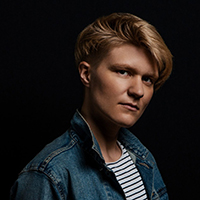 Yves Rees is a Lecturer in History at La Trobe University and author of All About Yves: Notes from a transition (Allen & Unwin 2021). Their essay ‘Reading the Mess Backwards’ won the 2020 Calibre Essay Prize. A co-host of the history podcast Archive Fever, Yves is a regular contributor to ABC radio and The Conversation, and their work has appeared in ABR, Overland, Guardian Australia, Inside Story, and Archer.
Yves Rees is a Lecturer in History at La Trobe University and author of All About Yves: Notes from a transition (Allen & Unwin 2021). Their essay ‘Reading the Mess Backwards’ won the 2020 Calibre Essay Prize. A co-host of the history podcast Archive Fever, Yves is a regular contributor to ABC radio and The Conversation, and their work has appeared in ABR, Overland, Guardian Australia, Inside Story, and Archer.
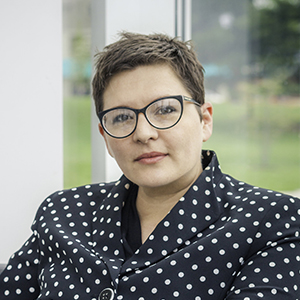 Beejay Silcox is an Australian writer and critic, and was the ABR Fortieth Birthday Fellow. Her literary criticism and cultural commentary appear in national arts publications such as ABR and Times Literary Supplement. Her award-winning short stories have been published at home and abroad.
Beejay Silcox is an Australian writer and critic, and was the ABR Fortieth Birthday Fellow. Her literary criticism and cultural commentary appear in national arts publications such as ABR and Times Literary Supplement. Her award-winning short stories have been published at home and abroad.
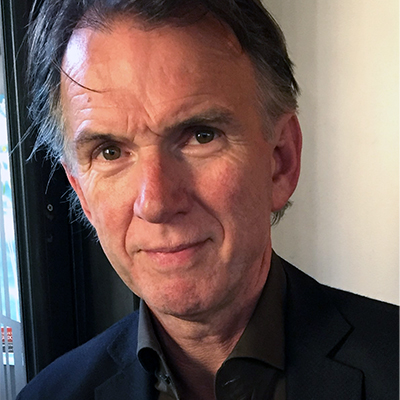 Peter Rose has been Editor of Australian Book Review since 2001. Previously he was a publisher at Oxford University Press. His reviews and essays have appeared mostly in ABR. He has published six books of poetry, two novels, and a family memoir, Rose Boys (Text Publishing), which won the 2003 National Biography Award.
Peter Rose has been Editor of Australian Book Review since 2001. Previously he was a publisher at Oxford University Press. His reviews and essays have appeared mostly in ABR. He has published six books of poetry, two novels, and a family memoir, Rose Boys (Text Publishing), which won the 2003 National Biography Award.
Tracy Ellis wins the 2022 ABR Elizabeth Jolley Short Story Prize
Australian Book Review is delighted to announce that Tracy Ellis is the winner of this year’s ABR Elizabeth Jolley Short Story Prize for her story ‘Natural Wonder’. She receives $6,000. This year’s prize – worth a total of $12,500 – received 1,338 entries from thirty-six different countries. Nina Cullen placed second and receives $4,000 for her story ‘Dog Park’, and C.J. Garrow placed third and receives $2,500 for his story ‘Whale Fall’.
The 2022 Jolley Prize was judged by Amy Baillieu, Melinda Harvey, and John Kinsella. The judges’ report, as well as the full longlist, can be found below.
Each of the shortlisted stories are published in the 2022 August issue (purchase single issues here). ABR extends a warm congratulations to Tracy Ellis, Nina Cullen, and C.J. Garrow, as well as to the longlisted entrants. Thank you to all who entered this year’s prize. We look forward to receiving your entries next year.
Winner
Tracy Ellis
for ‘Natural Wonder’
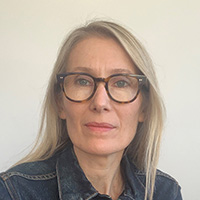 Tracy Ellis lives in Sydney and works as an editor in digital and print media. She has a Master’s in Creative Writing from UTS and was previously longlisted for ABR’s Calibre Essay Prize.
Tracy Ellis lives in Sydney and works as an editor in digital and print media. She has a Master’s in Creative Writing from UTS and was previously longlisted for ABR’s Calibre Essay Prize.
Second
Nina Cullen
for ‘Dog Park’
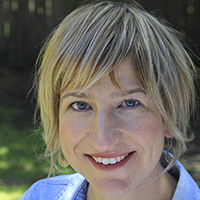 Nina Cullen is a Newcastle-based writer whose work has appeared in various Australian and international publications. She has just finished a collection of linked short stories and is working on a novel.
Nina Cullen is a Newcastle-based writer whose work has appeared in various Australian and international publications. She has just finished a collection of linked short stories and is working on a novel.
Third
C.J. Garrow
for ‘Whale Fall’
 C.J. Garrow is a Melbourne writer whose fiction has been shortlisted for various international prizes. His story ‘Egg Timer’ was shortlisted in the 2020 Jolley Prize.
C.J. Garrow is a Melbourne writer whose fiction has been shortlisted for various international prizes. His story ‘Egg Timer’ was shortlisted in the 2020 Jolley Prize.
Full longlist
‘by the hour’ by Diana Clarke (New Zealand)
‘Dog Park’ by Nina Cullen (NSW) - shortlisted
‘Case Notes’ by Sonja Dechian (Vic.)
‘Natural Wonder’ by Tracy Ellis (NSW) - shortlisted
‘Whale Fall’ by C.J. Garrow (Vic.) - shortlisted
‘And Then There Is Pink’ by Madison Griffiths (Vic.)
‘Glads’ by Susan Hettinger (United States)
‘half-moons filled with jam’ by Andy Kovacic (NSW)
‘Born for You’ by Magdalena McGuire (Vic.)
‘The Mend’ by Bruce Meyer (Canada)
‘Blowing Up’ by Alec Patrić (Vic.)
‘Not-John’ by Jonathan Ricketson (Vic.)
‘Zamek’ by Alex Skovron (Vic.)
‘human material’ by Tracey Slaughter (New Zealand)
Judges’ comments
In ‘Natural Wonder’, the narrator watches over three boys – her son and his two cousins – as they spend the first days of a new year playing at a beach on Sydney harbour. This story of children swimming and fencing with toy lightsabers on the sand has a gently melancholic undertow: it emerges that the cousins have experienced the recent trauma of losing their mother. The narrator feels a strong urge to protect and comfort her nephews but she is also drawn to ideas of escape and freedom. The story is remarkable for its quietness, acknowledgement of knotty feelings, and the room it makes for small miracles.
In the tense and atmospheric story ‘Dog Park’, Georgie takes her young son Max on a midday visit to the park where she watches from a shaded bench while he plays. Georgie’s protective love for her son infuses the story even as her desperate longing to shield him from potential pain or humiliation leads to growing tensions and an unsettling confrontation. ‘Dog Park’ is a tender examination of the evolving relationship between an anxious mother and her growing child that is filled with nuanced observations and telling details. The complex interactions between the characters in this story are particularly convincing.
The bullying of Bernard Tusk at a school for boys ‘of shallow prospects’ is conveyed in a wry, uncanny, and almost defamiliarising way in ‘Whale Fall’, which uses the beaching of a whale carcass as a metaphor for pointless death. As an implicated but also threatened observer, the narrator takes us through the destruction of Tusk who, like all the younger boys, vaguely seeks ‘cool’, but can’t attain it. The triggering complicity of the narrator is both strangely self-exonerating and self-accusatory as he tries to figure out his role between collusion and empathy. The story skilfully examines a fraught complicity and guilt.
ABR warmly acknowledges the generous support of ABR Patron Ian Dickson, who makes the Jolley Prize possible in this lucrative form. We congratulate all the longlisted and shortlisted authors.
Previous winners
Subscribers to ABR can read previous prize-winning stories to the Jolley Prize. To read these stories, click here.
If you aren't a subscriber, digital subscriptions begin at only $10 per month. Click here to become an ABR subscriber.
2023 Porter Prize Judges
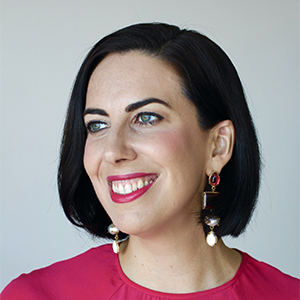 Sarah Holland-Batt is the author of three volumes of poetry, most recently The Jaguar (UQP, 2022), and a book of essays, Fishing for Lightning: The spark of poetry (UQP, 2021). She has received a number of honours, including the Prime Minister’s Literary Award for Poetry, a Sydney Myer Creative Fellowship, and the Judy Harris Writer in Residence Fellowship at the University of Sydney’s Charles Perkins Centre. Sarah is Professor of Creative Writing at QUT and Chair of the ABR Board.
Sarah Holland-Batt is the author of three volumes of poetry, most recently The Jaguar (UQP, 2022), and a book of essays, Fishing for Lightning: The spark of poetry (UQP, 2021). She has received a number of honours, including the Prime Minister’s Literary Award for Poetry, a Sydney Myer Creative Fellowship, and the Judy Harris Writer in Residence Fellowship at the University of Sydney’s Charles Perkins Centre. Sarah is Professor of Creative Writing at QUT and Chair of the ABR Board.
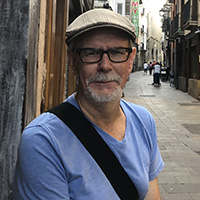 Des Cowley is Principal Librarian, History of the Book and Arts, at State Library Victoria. He is co-author of The World of the Book (MUP, 2007), and co-editor of Creating and Collecting: Artists’ books in Australia (2015). He recently edited the Collected Prose Poems of Gary Catalano and is editor of the Red Letter series of poetry chapbooks, published by Life Before Man press.
Des Cowley is Principal Librarian, History of the Book and Arts, at State Library Victoria. He is co-author of The World of the Book (MUP, 2007), and co-editor of Creating and Collecting: Artists’ books in Australia (2015). He recently edited the Collected Prose Poems of Gary Catalano and is editor of the Red Letter series of poetry chapbooks, published by Life Before Man press.
 James Jiang is Assistant Editor at ABR. He was awarded his PhD in English from the University of Cambridge and taught for a number of years at the University of Melbourne. He has written for a variety of publications in Australia and abroad on poetry, critical culture, diasporic literature, and sport.
James Jiang is Assistant Editor at ABR. He was awarded his PhD in English from the University of Cambridge and taught for a number of years at the University of Melbourne. He has written for a variety of publications in Australia and abroad on poetry, critical culture, diasporic literature, and sport.
The winner of the 2023 Calibre Essay Prize is Tracy Ellis for her essay 'Flow States' which appears in our May 2023 issue. The runner up is Bridget Vincent for her essay 'Child Adjacent' which will appear in a future issue.
For more information about Tracy Ellis, Bridget Vincent and the results of the 2023 Calibre Essay Prize click here.
The shortlist for the 2023 Calibre Essay Prize was announced on 11 April 2023.
Status: Winner, runner-up and shortlist announced
Prize money: $7,500
Dates: 14 October 2022 – 15 January 2023, 11:59 pm
Judges: Yves Rees, Peter Rose and Beejay Silcox
The winning essay will be published in the May issue of ABR.
Past winners
Click the link for more information about past winners and to read their essays.
FAQs and Terms and Conditions
Please read our Frequently Asked Questions before contacting us with queries about the Calibre Prize.
Before entering the Calibre Essay Prize, all entrants must read the Terms and Conditions.
Exclusivity
Entries may be offered elsewhere during the judging of the Calibre Prize. If an entrant is longlisted and has their essay offered elsewhere, the entrant will have 24 hours to decide if they would like to withdraw their essay on offer elsewhere or from the Calibre Prize. Exclusivity is essential for longlisted essays. The overall winning essay will be published in the April 2023 issue, followed by the runner-up.
Entry fees
Current ABR subscribers: $20
Standard/non subscribers: $30*
*All non-subscribers will automatically receive four-month digital access to ABR free of charge.
Entry + subscription bundles
Entry + 1-year digital subscription: $90
Entry + 1-year print subscription (Australia): $110
Entry + 1-year print subscription (NZ and Asia): $190
Entry + 1-year print subscription (Rest of World): $210
Those who purchase a subscription while entering will be able to submit subsequent entries at the subscriber rate ($20).
ABR warmly acknowledges the generous support of ABR Patrons Mary-Ruth Sindrey and Peter McLennan.
2023 Peter Porter Poetry Prize
Dan Disney was named the overall winner of the 2023 Peter Porter Poetry Prize at an online ceremony on 19 January 2023 for his poem 'periferal, fantasmal'. The Porter Prize - Australia's most prestigious poetry competition - is worth a total of $10,000. This year’s judges – Sarah Holland-Batt, Des Cowley and James Jiang – shortlisted five poems by Chris Andrews (NSW ), Chris Arnold (WA), Michelle Cahill (NSW ), Dan Disney (South Korea/Australia), and Raisa Tolchinsky (USA). The shortlisted poems were selected from 1,132 entries sent from thirty-four countries. They appear in the January–February issue of ABR.
The judges said this of ‘periferal, fantasmal’:
‘A tour de force of linguistic estrangements, “periferal, fantasmal” excavates the colonial history sedimented in the names that litter the landscape of the Gippsland region in Victoria. Through its comic neologisms and deft calibrations of lyric temporality, the poem replays the sanction for mineral extraction provided by exonymic nomination, reminding us of the scotch-soaked nightmare from which we are still trying to awake.’
On learning of his win, Dan Disney commented:
‘Peter Porter opens his poem “Landscape with Orpheus” with an epigraph from The Magic Flute – “You only live once, let that be enough for you!”. Poems like Porter’s generate not only wonder but also awed awareness (and, for me, a shift thereafter towards ethical, experimental rhetoric). I am dazzled to be in the bright reality of a moment like this. It is an incredible honour to receive a prize bearing the name of such a prodigiously enlivening, humanising poet.’
Prefacing their comments on the shortlist (each appraisal appears below the shortlisted poets), the judges said:
The judges were pleased to consider a rich and deep field of entries to the Peter Porter Poetry Prize this year, reflecting both the variety and strength of contemporary poetry, and many of its stylistic and thematic concerns. This year’s entries reflected a pronounced interest in climate issues and contemporary geopolitics, with a number of poems touching on recent floods and bushfires, species extinction, and the war in Ukraine. Many entries veered towards the experimental, and there were fewer lyric poems, love poems, and poems explicitly interested in established forms than in previous years. The outstanding poems on this year’s shortlist share an interest in political concerns refracted through their expression in language, including philology and etymology, and the power of listing, cataloguing, and naming. The five shortlisted poems engage with pressing subjects such as mining, colonial place naming, abortion, environmental degradation, and the relationship between the human and non-human worlds, but do so with subtlety, wit, and linguistic charge, rather than didacticism. Curiously, a taxonomic impulse manifests in several of the shortlisted poems, which probe the inflections, origins, and currency of words.
Reading the shortlisted poems
The shortlisted poems appear in our January–February 2023 issue and subscribers can read them here. The print edition is also available to purchase, simply click here and follow the prompts.
The five shortlisted poems are (in alphabetical order):
‘Loss-invaded Catalogue’ by Chris Andrews (Australia)
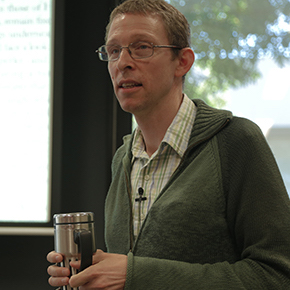 Chris Andrews has taught at the Universities of Melbourne and Western Sydney. He is the author of two collections of poems: Cut Lunch (Indigo, 2002) and Lime Green Chair (Waywiser, 2012). His study of the Oulipo, How to Do Things with Forms, was published by McGill-Queen’s University Press in 2022. Currently he is translating You Glow in the Dark by the Bolivian writer Liliana Colanzi.
Chris Andrews has taught at the Universities of Melbourne and Western Sydney. He is the author of two collections of poems: Cut Lunch (Indigo, 2002) and Lime Green Chair (Waywiser, 2012). His study of the Oulipo, How to Do Things with Forms, was published by McGill-Queen’s University Press in 2022. Currently he is translating You Glow in the Dark by the Bolivian writer Liliana Colanzi.
Judges: ‘Loss-Invaded Catalogue’ marshals the satirical potential of the tetrameter line into a deadpan critique of the intractability of the new systems – romantic, informational, or industrial – to which we are all made to subscribe. Lifting away the bureaucratic pallor that has become the most visible alibi for violence in our contemporary world, the poem deploys lyrical perception against the mortmain of cliché and institutionalised groupthink.
‘Running Up That Bill’ by Chris Arnold (Australia)
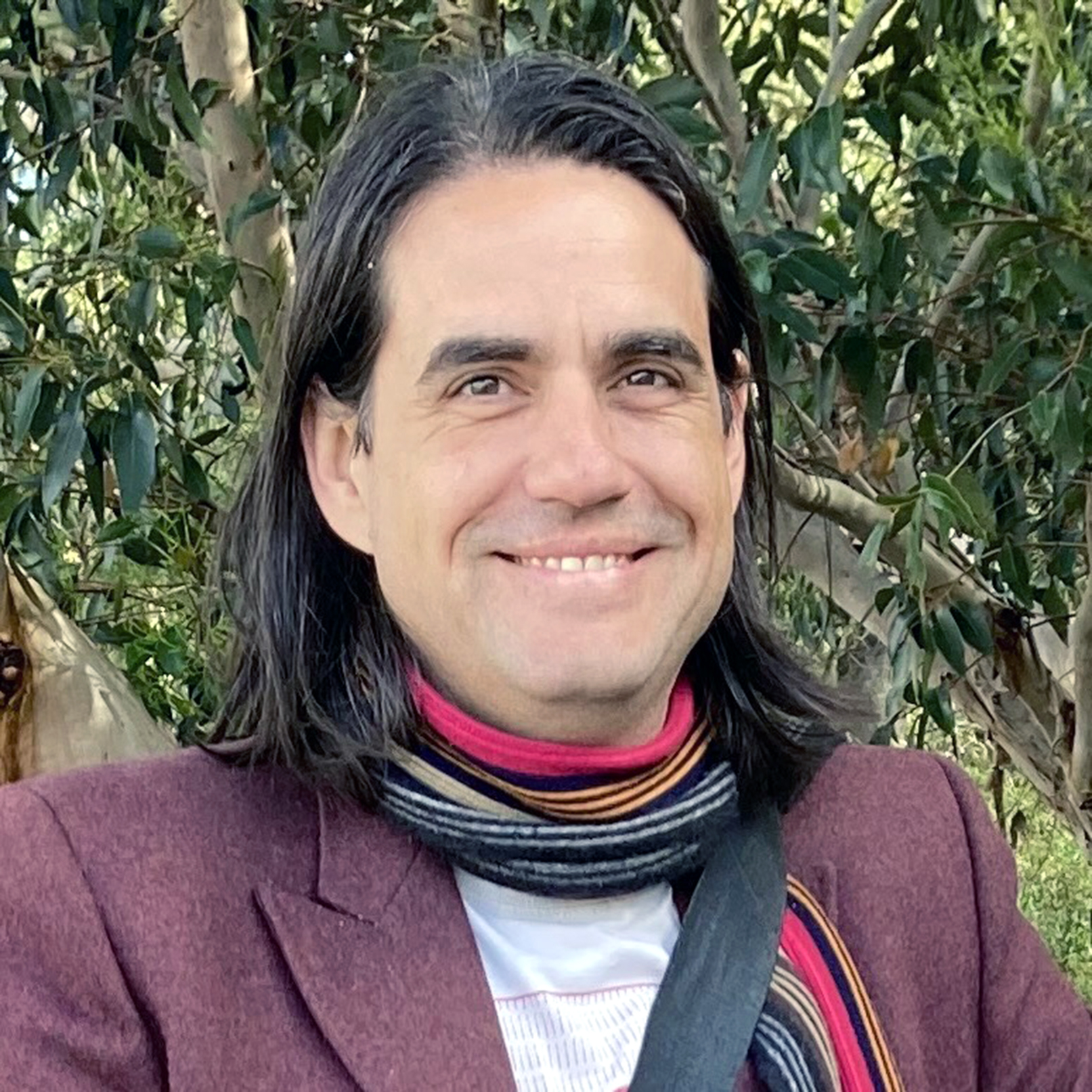
Judges: Rife with argot and acerbic wit, “Running Up that Bill” mashes up open-cut mining, news headlines, and pop culture to create a patchwork view of an Australia that venerates the wrong gods. Toggling between Kate Bush, Cold Chisel, the excesses of Surfers Paradise, and the destruction of the Juukan Gorge, the poet garners breakneck momentum over a virtuosic single sentence, offering a dark vision of a nation in thrall to our faded wrecks of ‘culture’ –half-hallucinated, half-real – where ‘the dog track’s still going and the emu’s / on tap’.
‘Field Notes for an Albatross Palimpsest’ by Michelle Cahill (Australia)
 Michelle Cahill (she/they) is an Australian novelist and poet of Indian heritage who lives in Sydney. Daisy & Woolf is published by Hachette. Letter to Pessoa (Giramondo) was awarded the NSW Premier's Literary Award for New Writing. Their prizes include the Red Room Poetry Fellowship, the Val Vallis Award, the KWS Hilary Mantel International Short Story Prize, and a shortlisting in the ABR Elizabeth Jolley Prize. Their work appears in The Best of Australian Poems, HEAT, Plumwood Mountain, Kalliope X and The Kenyon Review.
Michelle Cahill (she/they) is an Australian novelist and poet of Indian heritage who lives in Sydney. Daisy & Woolf is published by Hachette. Letter to Pessoa (Giramondo) was awarded the NSW Premier's Literary Award for New Writing. Their prizes include the Red Room Poetry Fellowship, the Val Vallis Award, the KWS Hilary Mantel International Short Story Prize, and a shortlisting in the ABR Elizabeth Jolley Prize. Their work appears in The Best of Australian Poems, HEAT, Plumwood Mountain, Kalliope X and The Kenyon Review.
Judges: Tapping into a rich tradition of seafaring idiom, ‘Field Notes for an Albatross Palimpsest’ presents a collage of voices crossing centuries: mariners and poets, journalists and technocrats. Summoning Coleridge’s metaphorical bird, and sure-footed in its naming, the poem plots a line between slavery, damaged food chains, over-harvesting of marine resources, clogged and polluted beaches, ‘creaking landfill’. Woven from the language of shipboard journals, Māori place names, maps, newspaper reports, these patchwork notes posit extinction as an endgame, consumed at ‘high speed’.
‘periferal, fantasmal’ by Dan Disney (South Korea/Australia) (winner)
Dan Disney’s most recent collection of poems, accelerations & inertias, (Vagabond Press 2021), was shortlisted for the Judith Wright Calanthe Award and received the Kenneth Slessor Prize. Together with Matthew Hall, he is the editor of New Directions in Contemporary Australian Poetry (Palgrave 2021). He teaches with the English Department at Sogang University, in Seoul.
Judges: A tour de force of linguistic estrangements, ‘periferal, fantasmal’ excavates the colonial history sedimented in the names that litter the landscape of the Gippsland region in Victoria. Through its comic neologisms and deft calibrations of lyric temporality, the poem replays the sanction for mineral extraction provided by exonymic nomination, reminding us of the scotch-soaked nightmare from which we are still trying to awake.
‘Abiquiu, New Mexico’ by Raisa Tolchinsky (United States)
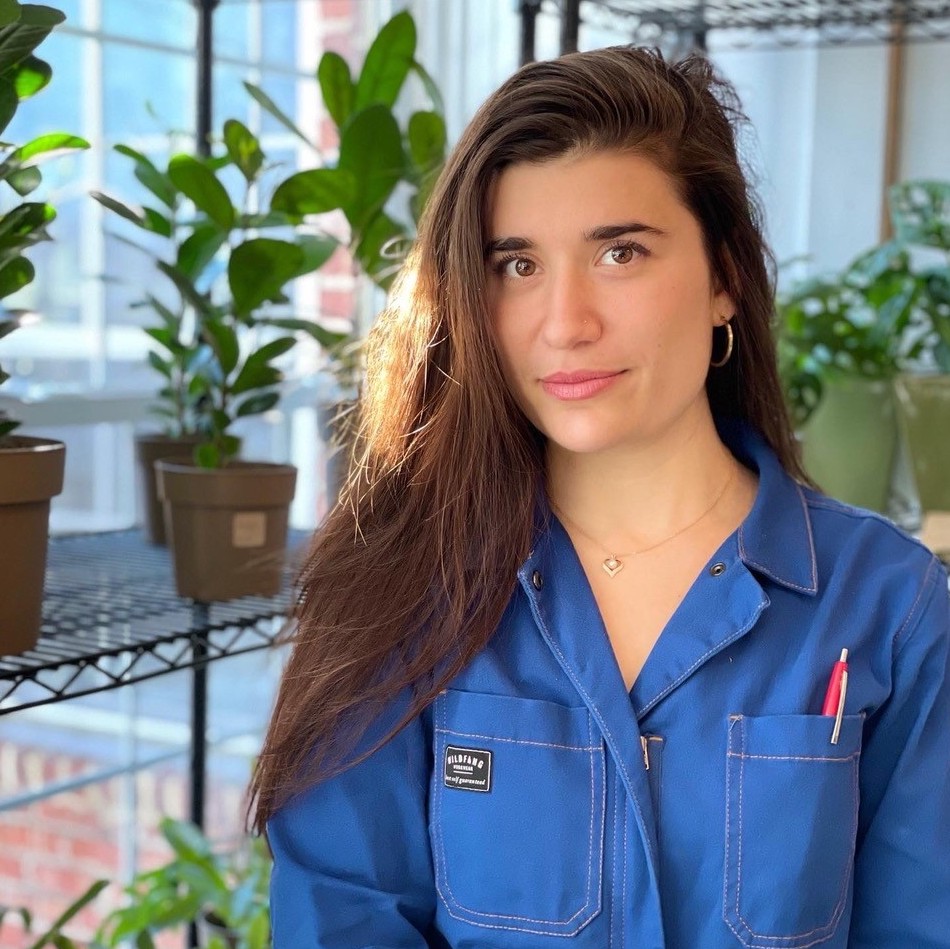 Raisa Tolchinsky writes about love, grief, and the wisdom of the body. She is the recipient of the Henfield Prize for Fiction and two Pushcart Prize nominees in poetry. Raisa earned her MFA in poetry from the University of Virginia and her BA from Bowdoin College. She is trained as an amateur boxer. Her chapbook Number One Deadliest, an eco-poetic meditation on boxing and climate grief, was published with the Under Review in 2021. She was shortlisted in the 2021 Peter Porter Poetry Prize. Currently, Raisa is the George Bennett Writer-in-Residence at Phillips Exeter Academy in New Hampshire.
Raisa Tolchinsky writes about love, grief, and the wisdom of the body. She is the recipient of the Henfield Prize for Fiction and two Pushcart Prize nominees in poetry. Raisa earned her MFA in poetry from the University of Virginia and her BA from Bowdoin College. She is trained as an amateur boxer. Her chapbook Number One Deadliest, an eco-poetic meditation on boxing and climate grief, was published with the Under Review in 2021. She was shortlisted in the 2021 Peter Porter Poetry Prize. Currently, Raisa is the George Bennett Writer-in-Residence at Phillips Exeter Academy in New Hampshire.
Judges: ‘Abiquiu, New Mexico’, compelling in its brevity, strikes the reader like a blow to the solar plexus. Shifting gears between clinical terminology and wide-open desert landscapes, it careens between rage and beauty, loss and renewal. Rendered in the irreducible language of the heart, free of cliché and sentimentality, the poem’s unembellished phrasing – ‘mother tongue emptied into ordinary language’ – confronts the limits of speech, asking how it is possible to express ‘impossible grief’.
Congratulations to the full longlist:
Chris Andrews (NSW), ‘Loss-Invaded Catalogue’ – Shortlisted
Steve Armstrong (NSW), ‘When night is the mother of wisdom’ – Longlisted
Chris Arnold (WA), ‘Running Up That Bill’– Shortlisted
Luke Beesley (VIC), ‘Tilde and author’ – Longlisted
Michelle Cahill (NSW), ‘Field Notes for an Albatross Palimpsest’ – Shortlisted
Eva Da (US), ‘Foreign Skies’ – Longlisted
Dan Disney (Korea), ‘periferal, fantasmal’ – Shortlisted
Dave Drayton (NSW), ‘The gold is gone’ – Longlisted
Katie Hale (England), ‘Titania’ – Longlisted
Dimitra Harvey (NSW), ‘Feral’ – Longlisted
Rhian Healy (VIC), ‘Full Throttle’ – Longlisted
Julie Janson (NSW), ‘Kurraarr Far Country’ – Longlisted
Rosa Lane (US), ‘Foxglove [disambiguation]’ – Longlisted
Penelope Layland (VIC), ‘The paddy melon wars’ – Longlisted
James Lucas (NSW), ‘Trip advisor’ – Longlisted
Kirsten McAteer (US), ‘Cows’ – Longlisted
Isabella Mead (VIC), ‘Bonnethead’ – Longlisted
Damen O’Brien (QLD), ‘The pelican feeder’ – Longlisted
Mark O’Flynn (NSW), ‘For Sale, The Most Beautiful Object in the World’ – Longlisted
Karen Petersen (US), ‘My Long Island’ – Longlisted
Peter Ramm (NSW), ‘On Seeing the Statue of Darius from Susa’ – Longlisted
Amritha Selvarajaguru (US), ‘milkteeth & the love of the shark’ – Longlisted
Meredith Stricker (US), ‘Autopoiesis’ – Longlisted
Raisa Tolchinsky (US), ‘Abiquiu, New Mexico’ – Shortlisted
Gabriela Valencia (US), ‘Death, Whistle’ – Longlisted
To stay updated on the Porter Prize and Australian Book Review’s other prizes, please sign up for our ‘Prizes and Programs’ newsletter.
We gratefully acknowledge the long-standing support of Morag Fraser AM and Andrew Taylor AM and support in memory of Kate Boyce.


